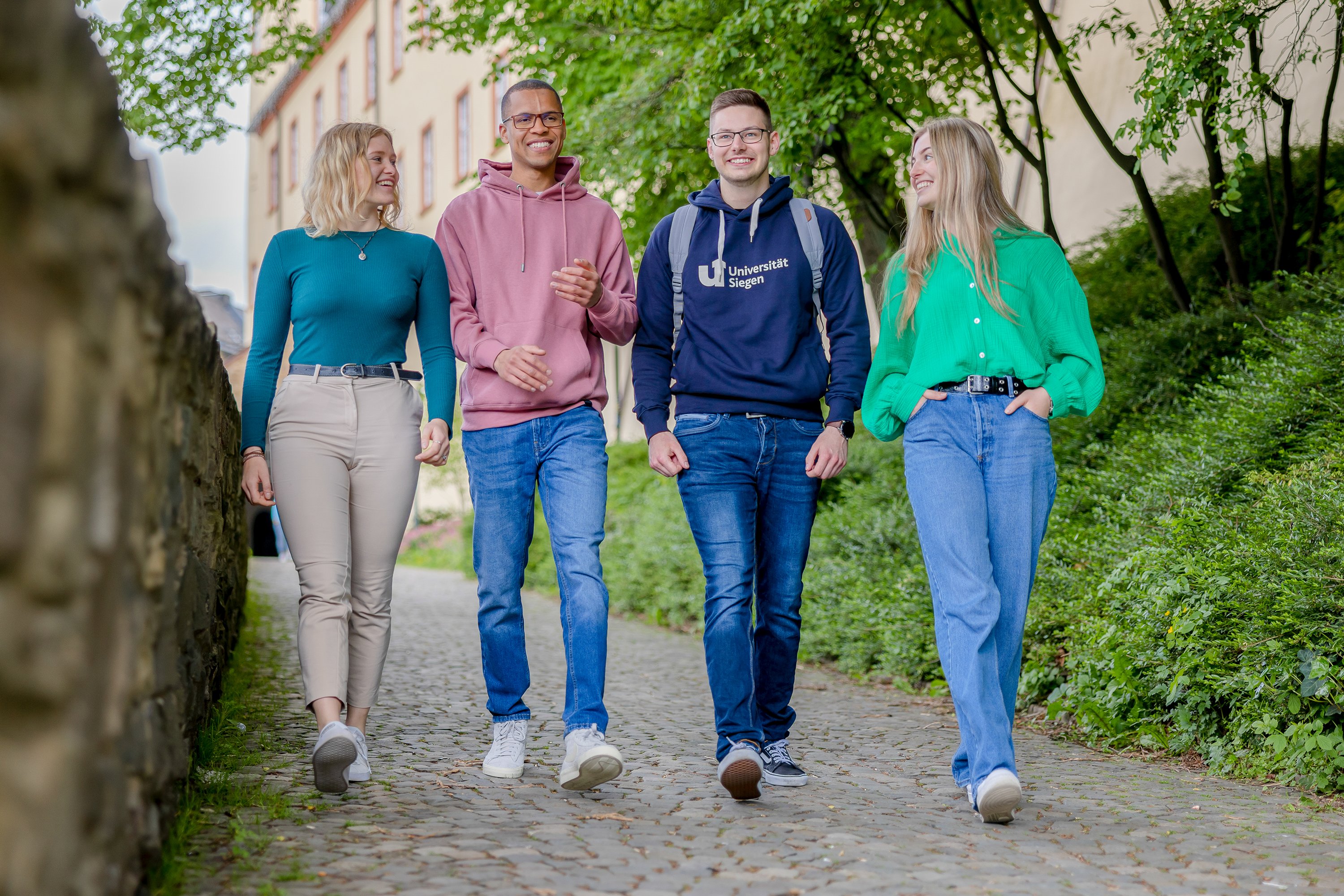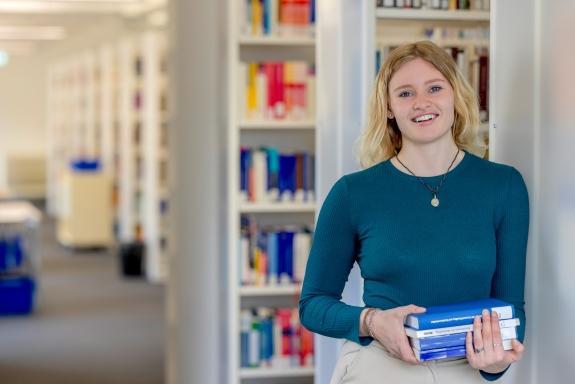Your future begins in Siegen
LiDAS enables you to study with a focus on both research and practice, allowing you to choose from three specializations and various linguistic specializations: (1) Structures of Language(s) - Digital Linguistics (DL), two linguistic specializations, (2) Professional and Public Communication (PÖK), one linguistic specialization, (3) Foreign Languages in Adult Education (FidE), one linguistic specialization. You will acquire subject-specific knowledge and skills that will pave the way for an academic career on the one hand and provide you with the skills to work as an expert in various professional fields on the other.
Everything at a glance
Career prospects
Structures of language(s) - Digital Linguistics
- Activities related to the development and distribution of media-supported communication platforms (language data analysis, web applications, data journalism, etc.),
- the mediation between languages/speakers/communicatinguserson the one hand and IT specialists on the other,
- the development of our own language technology applications for tasks in research, education and business.
Foreign languages in adult education
- Activities in the planning and organization of foreign language courses in continuing vocational training and general education, including the use of digital media and forms of communication,
- the supervision/management of language departments or language centers at universities and at public and private continuing education institutions,
- the development and management of multimedia self-study centers,
- working for publishers of teaching and learning materials and online providers of language learning resources.
Professional and public communication
- Planning and organizing seminars to develop (job-related) oral and written communication skills with a special focus on media-supported, especially digital communication and intercultural constellations,
- Responsible activities for language and communication experts, especially in the areas of HR work/training and further education, corporate communication (especially on digital platforms), internal communication in organizations, public relations in multilingual contexts,
- communication consulting, coaching and training.
Students about studying linguistics
Interdisciplinary - Application-oriented - Versatile
FidE - Viktoriia Matiushenkova
My name is Viktoriia and after graduating in Translation and Translation Studies with an additional qualification as a teacher of foreign languages (English and German) at Kemerovo State University, I began studying for a Master's degree in Applied Linguistics with a specialization in foreign languages in adult education in English in Siegen in the winter semester of 2021/2022.
I chose this degree for several reasons. Firstly, I was fascinated by the opportunity to specialize in linguistics and foreign languages in adult education at the same time. Secondly, I wanted to deepen my knowledge of adult education and compare pedagogical approaches in both countries.
During my studies, I gained valuable insights and inspiration for my work as a foreign language teacher through a wide range of courses. The same also applies to a further education course called DaZSi (learning German with newly immigrated pupils and adults), thanks to whose dedicated team I prepared myself professionally and ultimately received approval to teach integration courses. I am currently working in adult education and putting my acquired knowledge to practical use.
In summary, this Master's degree program has enriched me academically and personally, taught me important skills and broadened my career prospects. I am grateful for the support and look forward to continuing to apply my knowledge in practice.
Career preparatory - collaborative - practice-oriented
PK - Thiemo Simstich
My name is Thiemo Simstich and since winter semester 2021/22 I have been studying Communication and Foreign Language in the Profession with a specialization in Professional Communication in German.
During my Bachelor's degree in Language and Communication, which I also completed in Siegen, I discovered my interest in applied linguistics, which I can deepen with the Master's degree. In addition to the obvious added value of the course, the large number of acquaintances and interesting people was particularly formative for me, which for me is primarily due to the successful combination of age structure and university atmosphere. As a result, it doesn't take much effort to strike up a conversation - you just have to dare to do so.
Thanks to the internship I completed at a communications consultancy agency during my studies, I was able to secure a permanent position after graduation. That speaks volumes for the university and for what I learned at
.
- 1) Bachelor's degree in a relevant subject with a focus on linguistics or
- 2) a first professionally qualifying university degree in a comparable course of study. This includes in particular teacher training courses with a standard period of study of at least six semesters as well as equivalent foreign courses.
You must provide proof of English language skills at level B2. A further requirement for admission is proof of very good knowledge in the chosen language specialization(s) at the following levels:
- English, French: level C1
- Spanish: level B2
The current examination regulations always apply.
Examination regulations including study plans and module descriptions
Framework Examination Regulations (RPO-M) and the General Subject-Specific Regulations of the Subject Examination Regulations (PHIL-FPO-M) define the general framework conditions for studying in Siegen and at the Faculty of Arts and Humanities.
In addition, the Subject Examination Regulations of the individual (partial) degree programs (FPOs) define the basic structures of a (partial) degree program (e.g. admission requirements and content to be studied). The subject examination regulations are accompanied by course plans, which represent the recommended exemplary course of study in the individual subjects, as well as module descriptions (content-related information on modules).
The current version of an FPO automatically applies to students when they enrol for their first semester.
Good reasons for studying Linguistics at the University of Siegen
- Diverse, interdisciplinary study program
- Linguistic theory, practice and empiricism from a single source
- interdisciplinary work at the interface with social and educational sciences, media studies, computational linguistics and foreign language didactics
- integration of the course into ongoing teaching and research projects (such as the discourse monitor)
- Great creative freedom through the realization of own multi-semester research projects


